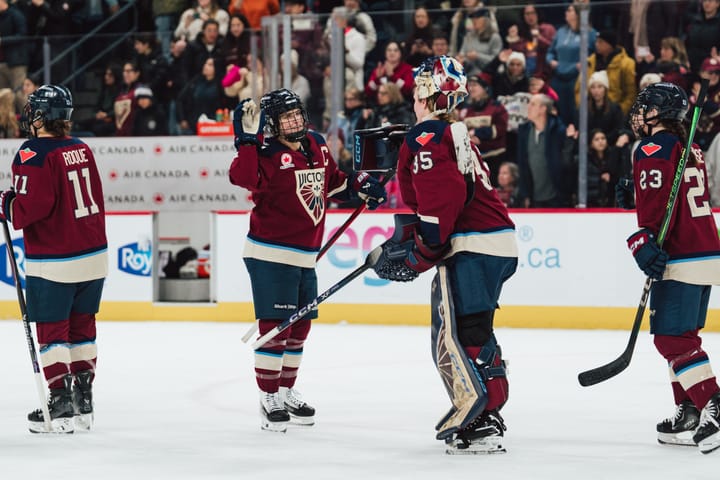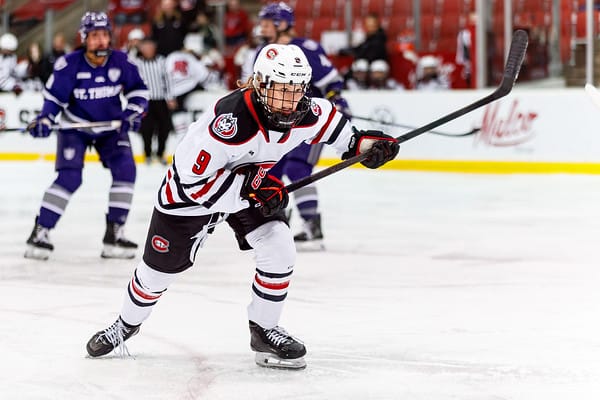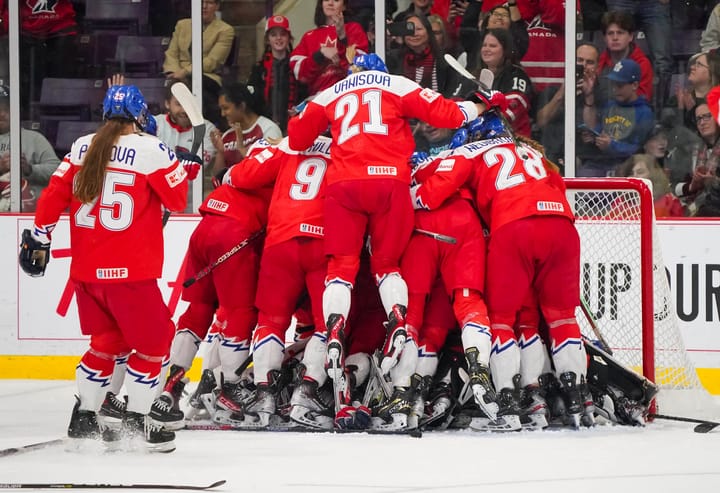A united Team Korea has the world buzzing
South Korea’s women’s national team has become an unexpected political battleground.
North and South Korea have agreed in principle to form a joint women’s ice hockey team for the Pyeongchang Olympics. The two nations have also agreed to march together at the Olympic opening ceremonies. This is unprecedented. This is history. And this is happening in women’s hockey.
“The tension between North and South Korea is so high,” Korean national team defender Marissa Brandt told CBS’ Dana Jacobsen. “Even just a little, small thing like this showing that we can be unified would just - I hope - go a long way.”
The upcoming Winter Olympics could make history by featuring North and South Korea’s first unified team. The two countries agreed to a joint women’s hockey team. @danajacobson spoke to one of the players about the unified team: pic.twitter.com/mpI4qbeFox
— CBS This Morning ❄️ (@CBSThisMorning) January 16, 2018
But as inspiring as a unified team may be to the world, it does not and will not come without controversy. The proposal, first made by South Korean officials back in June, has been met with significant resistance and protest in South Korea. Before the beginning of the New Year, the symbolic gesture of a unified team was lost in the smoke of North Korean military provocations. Only in the past few weeks, after an address from North Korean leader Kim Jong-un, have things changed.
One senior Korea Ice Hockey Association official shared that the team itself, which recently trained in the United States and played against the NWHL’s Connecticut Whale, has had a negative reaction to the proposal.
“Whether you’re South Korean or North Korean, they have to earn their place.” - Sarah Murray
“They were just furious and found the idea absurd,” the official told Reuters on the condition of anonymity. “We are utterly speechless that the government just picked us out of blue and asked us to play with total strangers at the Olympics.”
South Korea’s Canadian head coach Sarah Murray told the CBC that she has “mixed feelings” about the plan for a joint team. And really, it’s hard to blame her. Murray reportedly first heard of the proposal from her staff and members of the media - not from the South Korean government itself. She has expressed concerns about team chemistry and what a joint roster will mean to the team she’s helped build, train, and mold for the past few years.
“I hope that I am not being pressured to play (North Koreans),” Murray told the Yonhap News Agency. “I just want the best players to play. If you play your best, then you earn your ice time. Whether you’re South Korean or North Korean, they have to earn their place.”
It is South Korea’s goal to promote peace at the PyeongChang Olympic Games. But clearly, this eleventh hour effort to form a unified team is more than a little bit slapdash.
The plan, on paper, is to ask the IOC and IIHF to expand the roster from 23 athletes to 30. This way none of the South Korean athletes who have devoted themselves to training and preparing for the Games will suddenly find themselves excluded. But even if the proposal for an expanded, unified roster is approved there are some South Korean athletes who might not get to skate on Olympic ice.
There’s no guarantee that the IOC will endorse and approve of the proposed roster expansion. Already Switzerland, the first team scheduled to play Korea (February 10), has expressed concerns about an expanded roster for the Koreans not being fair. On Saturday the IOC will meet with representatives from the two Koreas to decide what happens next.
It’s hard to say what kind of pressure there is on the IOC to green light the expanded roster. Politics is nothing new to the world of women’s hockey, but this is something completely different. To some, this just might be the first meaningful step towards something much bigger than hockey or sport itself.
“I believe our people and people around the world will be moved while watching such a sight,” South Korean President Moon Jae-in said yesterday. “It will also mark a good start to improving South-North Korea ties for the future.”





Comments ()